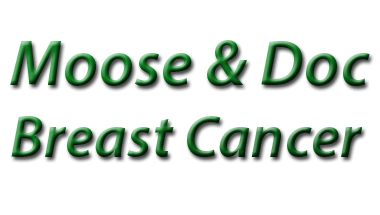Breast Cancer Risk Factors that you CAN change.
This post is about breast cancer risk factors (with lots of statistics and graphs) that you CAN change. So, if you are thinking of getting more healthy as you age, or you already know that you have an increased risk of breast cancer, then this one is for you.
Firstly, according to the National Cancer Institute, the risk of developing breast cancer is around 1 in 8 or 12% over a lifetime.
We have a whole post on the lifetime risk of breast cancer and the factors that you can NOT change (as listed above) here.
Booze and Breast Cancer
It is well known that excessive alcohol intake is linked with a whole host of health and social issues.
However, extensive research studies have established a strong link between alcohol intake and an increased risk of breast cancer.
Indeed, there appears to be a complex relationship between alcohol consumption and hormone levels. This relationship poses an increased risk of breast cancer in women.
The combination of alcohol consumption with hormone replacement therapy in older women can wreak havoc on hormonal systems.
For younger women, excessive alcohol consumption has been shown to have a negative effect on the functioning of estrogen and progestin receptors. This may increase the risk of developing breast cancer. Furthermore, one research study suggests that young women are particularly susceptible to alcohol intake from menarche to the first pregnancy.
How much is too much?
The overall increase in breast cancer risk for those who drink 15 to 30 grams (1 – 2 drinks) of alcohol per day is around 30% to 50%.
According to the Breast Cancer Org women who drink 3 alcoholic drinks a week have a 15% higher risk of breast cancer than those that do not drink.
Even taking into account the variability of how researchers define light, moderate and heavy alcohol intake, the link between alcohol and an increased risk of breast cancer is undeniable.
A meta-analysis of 53 studies compared women who abstained from alcohol with those who drank. This study concluded that:-
Even for light drinkers, 12.5 or fewer grams per day (around 1 or fewer drinks ), there is a 5% increase in risk.
The relative risk of breast cancer increases by 32% with an alcohol intake of 35 – 44 grams per day (3 to 4 drinks)
For those who drink over 45 grams per day (more than 4 drinks) breast cancer risk increases by 46%.
Basically, for every extra 10 grams of alcohol per day consumed the risk of breast cancer increases by 7% – 10%.
Obesity
There is an undeniable link between the risk of breast cancer and obesity according to research. In fact, obesity has been linked with an increased risk for all cancers.
Interestingly, in postmenopausal women, obesity is associated with a ‘modest’ increase in the risk of breast cancer. One research study demonstrated that an increase in Body Mass Index (BMI) of 5 units has a correlating 12% increase in breast cancer risk.
According to one medical study, there is a 20% to 40% increase in the risk of breast cancer in obese postmenopausal women. Interestingly, these higher risks are particularly associated with hormone receptor-positive breast cancers.
However, the converse is true in premenopausal women. Obesity appears to have some protective qualities for breast cancer and actually decreases the risk of hormonal positive breast cancers by 20%. However, obesity at a younger age may increase the risk of breast cancer after menopause.
Obesity has been linked with a poorer prognosis for breast cancer Patients
Medical studies have also found that obesity has been linked with a poorer prognosis and outcome for women diagnosed with breast cancer.
A large medical study in Denmark examined data for 18,967 women with early-stage breast cancer between 1977 and 2006.
The study found that women with a Body Mass Index (BMI) of 30 or more, were older with more advanced disease at diagnosis, compared with those with a BMI of 25 or under.
Furthermore, the risk of distant metastasis and obesity, after 10 years, increased by 46%. Even more disturbing, the risk of dying of breast cancer after 30 years is 38% higher in women with a BMI of 30 or above. However, there was no significant change for loco/regional recurrences.
Hormone Replacement Therapy: The Risks
If you look at breast cancer incidence rates (see line graph below) there is a very sharp decrease between the years of 2002 and 2003.
Many research studies have connected the sharp decrease in breast cancer incidence rates with the decline in the use of Hormone Replacement Therapy (HRT). Indeed, in 2003 there were around 20 million less HRT prescriptions by the end of 2003 than in 2002. This is a decrease in HRT use, at that time of 38% in the US.
The decline in the use of HRT followed a medical trial from the Women’s Health Initiative that highlighted the health risks of HRT. This study caused mass panic amongst women taking HRT as it suggested that combined HRT therapy (estrogen and progestin) increases a woman’s risk of breast cancer and coronary heart disease.
However, some research studies still refute the link between HRT use and the increased risk of breast cancer.
Hormone Replacement Therapy and Breast Cancer: Recent Findings
A 2016 research study claims that the increased risk of breast cancer associated with HRT treatment has been underestimated by up to 60%. This underestimation of risk is thought to be due to a lack of data collected on HRT use in cohort studies.
According to this large UK study, women taking combined HRT (estrogen and progestin) are 2.7 times more likely to develop breast cancer after 5.4 continuous years of use. This figure rises to around 3.3 times more likely after 15 years of use.
So, the more prolonged the use of combined HRT therapy the higher the risk of breast cancer. For menopausal women, it is important to discuss the different types of HRT and the associated risks and weigh up the individual pros and cons together.
Oral contraception and Breast Cancer
The use of oral contraception in relation to an increased risk of breast cancer has produced some confusing results amongst medical studies.
Medical studies over the last 20 years have estimated the risk of breast cancer in association with oral contraceptive use to be anywhere from ‘no increased risk’ to ‘a slightly increased risk’.
However, a large US study that examined 1,102 women between the ages of 20 and 49 years, concludes that:-
‘…recent use of contemporary oral contraceptives is associated with an increased breast cancer risk, which may vary by formulation.’
What does this mean? Well, the study found that women using oral contraception within the past year had a 1.5 (or 50%) higher chance of breast cancer than those who did not. However, this link was stronger in ER+ breast cancers.
However, this figure is a little misleading as the type of oral contraceptive was an important factor relating to the risk of breast cancer.
Recent use of high-dose estrogen contraceptive had a higher risk, 2.7 times more likely. Ethynodiol diacetate contraceptive pills contain a type of progestin and doubled the risk of breast cancer. Triphasic oral contraceptives, that combine estrogen and progestin, at different doses over 3 periods, tripled the risk of breast cancer.
However, low-dose estrogen contraceptive pills, that are widely prescribed now, do not carry an increased risk for breast cancer.
Smoking
Smoking as one of the risk factors for breast cancer remains a controversial and complex issue amongst medical experts.
There is little doubt that smoke contains carcinogens that may increase the risk of breast cancer. However, cigarette smoking also has an antiestrogenic effect that conversely may reduce the risk of breast cancer.
A recent study analyzed data from 73,388 women from the American Cancer Society’s Cancer Prevention Study II (CPS-II).
The study concludes that the risk for breast cancer is higher in current or former smokers than in those who have never smoked.
However, the highest risk for breast cancer was found in young women who started smoking at an early age, or 11 years before their first birth. This is thought to be because of a period of high ‘biological vulnerability’ between the ages of menarche and the first birth.
Interestingly, unlike risk factors with other cancers and smoking (such as lung cancer), the duration of smoking, amount of cigarettes smoked per day and time span since stopping did not affect the breast cancer risk.
Perspectives on the Risks
Breast cancer risks and related statistics can cause a great deal of anxiety in women. It is important to keep these statistics in perspective and to remember that the risk factors for breast cancer are complex and interlinked.
The most important thing to remember is that breast cancer is treatable and curable in up to 90% of women who develop the disease.
However, increased education and appropriate modification of behavior can certainly decrease the risk of developing breast cancer.
Points to take away from this post:-
- Avoid, where possible certain types of HRT or the contraceptive pill. If you do wish to take hormonal therapy, research the formulas with the lowest risk. For example, the low-estrogen contraceptive pill
- Maintain a healthy weight and diet
- Avoid drinking too much alcohol
- Do not smoke, or if you do, start making attempts to stop
- Incorporate regular exercise into your lifestyle
- Sleep well and get outside whenever possible
- Eat a healthy diet
don’t worry, be happy.
Questions and Answers with Dr Halls
I have read about obesity being one of the risk factors, but why is this
What are the emerging breast cancer risks factors
There are many other lifestyle factors that are thought to contribute to an increase in breast cancer risk. Although there is some scientific evidence for these factors, more research is necessary.
- Lack of exercise: Studies have suggested that regular exercise reduces the risk of breast cancer. Furthermore, exercise after diagnosis may improve prognosis
- Low levels of vitamin D: Shift workers have a disproportionate incidence of breast cancer. Lack of exposure to natural light or disruption to the circadian rhythm are thought to be factors
- Diethylstilbestrol (DES): A synthetic hormone that was prescribed to pregnant women between 1940 and 1971.
- Exposure to all manner of chemicals: This includes chemicals in cosmetics, food (especially grilled food), lawns and gardens, plastic, sunscreen and water
Further Reading
- Breast Cancer Risks that you can NOT change
- Most Important Risks for Breast Cancer
- The Relative Risk of Breast Cancer
- Full Index of ALL our articles on Incidence and Survival rates
Return to Homepage
REFERENCES:
- Sinicrope FA, Dannenberg AJ. (2011) Obesity and breast cancer prognosis: weight of the evidence. J Clin Oncol. 2011 Jan 1;29(1):4-7. https://www.ncbi.nlm.nih.gov/pubmed/21115867
- Howlader N, Noone AM, Krapcho M, et al (eds) SEER Cancer Statistics Review, 1975-2010, National Cancer Institute. Bethesda, MD,. http://seer.cancer.gov/csr/1975_2010/


